
The competition pool is narrowing down for the 2017 Fuller Challenge, which is now in its 10th year. Today, the Buckminster Fuller Institute announced 17 semi-finalist projects who still have a chance to win the grand prize to support their mission. The renowned competition seeks the most innovative “whole systems” design projects that simultaneously address dire issues in a broad range of domains, including architecture, community planning, education, public health, economic development, environmental and social justice, and more. Last week, the first Catalyst Program project selections were revealed.
Chosen out of more than 460 submissions from around the world, the semi-finalist projects went through a rigorous four-month evaluation period by the Challenge Review Committee.
“These Semifinalists were drawn from a truly exceptional pool of initiatives,” Fuller Challenge Founding Director Elizabeth Thompson said in a statement. “We were very gratified — having been at this for ten years now — to see that the quality of the visions, the caliber of the teams, and the commitment to solving complex issues demonstrated in the entry pool were at an all-time high...”
Read more about the semi-finalist projects below.
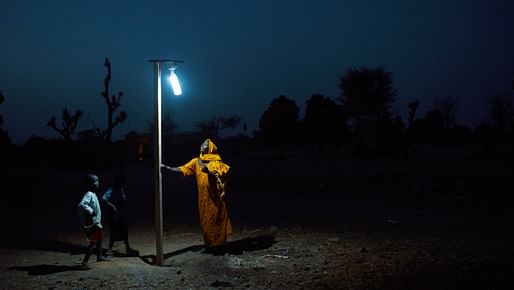
LifeArk is “a rapidly deployable structure that is flexible enough to respond to each individual community’s needs through its various configurations. It is fitted for transportation in standard shipping containers, can be mass produced at low cost and rapidly assembled with commonly available tools, and it allows for a variety of structure types, including community centers, health clinics, schools, hydroponic farms, and dwelling units—all of which can have a lifespan of 25-30 years. The units will contain built-in amenities as well as off-grid systems for clean water, energy, and waste management. The globally-adaptable LifeArk design is about to be prototyped on a lake in Texas and then deployed in the pilot community of Santa Rosa, Peru, along the Amazon River.”
Liter of Light: “Based in the Philippines, Liter of Light has operations in over 30 countries. The program trains cooperatives of women and seeds their entrepreneurial activities with materials and tools to create micro-solar panels and solar battery kits that can provide energy to lanterns, mobile chargers, and streetlights. Products are manufactured at one-third the market rate, but more importantly, local people gain skills toward their livelihood. Liter of Light also works with children in schools, corporate volunteers, and local governments through workshops in order to build solar lamps for donation. The program has trained more than 6,700 adults and children and has impacted over 750,000 homes.”
SOLARKIOSK: “A social enterprise that distributes E-HUBBs: an energy-connectivity gateway and last-mile distribution network for underserved communities. The flexibility of the E-HUBB has been demonstrated by various specialty applications, including: an education center at the Kafa Biosphere Reserve in Ethiopia; a solar school unit for the displaced population at the Zaatari refugee camp in Jordan; a health clinic supporting the efforts of the Jordan Ministry of Health for displaced populations; a water purification E-HUBB in Kenya; and a banking kiosk that will bring financial tools to off-grid populations in Nigeria. E-HUBBs can be modified to provide spaces for gathering communities, education, health, retail, administration, water purification, and more.”
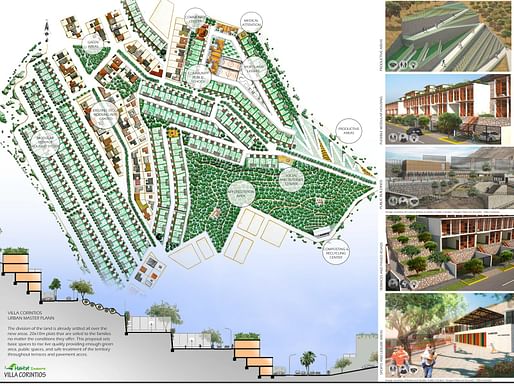
Habitat Indoors’ Villa Corintios offers “an exemplary design for transforming an informal settlement in the district of San Juan de Lurigancho in Lima, Peru, into a model of enlightened, ‘green’ urbanism. Villa Corintios will include, when completed, a terraced landscape inspired by ancient Incan techniques, a greenbelt, and productive parks that will contain agricultural allotments and fish farms. The design, which includes health-care infrastructure, the creation of some 500 jobs, and the incubation of 10 local companies, will radically boost the well-being of the inhabitants and provide a model for the transformation of poor, underserved ‘informal’ urban settlements into vibrant, sustainable, healthy communities.”
El Ingenio by Germinalia A.C. is “an interdisciplinary educational initiative dedicated to nurturing the creativity of young minds and imparting skills that permit poor children to thrive in both the economic marketplace and in their personal fulfillment. Founded in San Cristobal de las Casas in Chiapas, Mexico and with an aim toward eventual self-sufficiency, this nonprofit has spun off Geniart, a for-profit counterpart that closes the gap between creative education and creative production by marketing the high-quality products (furniture, books, CDs, etc.) generated in the learning environments.”
Fideicomiso de la Tierra del Caño Martín Peña (Martín Peña Channel Community Land Trust) “has designed the ENLACE project to address a variety of pressing needs in a poor, underserved, historically disenfranchised ‘informal’ community near the center of San Juan, Puerto Rico. The project takes on the environmental restoration of the Caño Martín Peña, a polluted, degraded tidal channel located in the heart of the San Juan Bay estuary with important ecological and economic significance, while simultaneously working to prevent gentrification and provide affordable housing and access to critical infrastructure for the inhabitants. The project’s leaders decided to use a Community Land Trust (CLT) as a vehicle for community empowerment.”
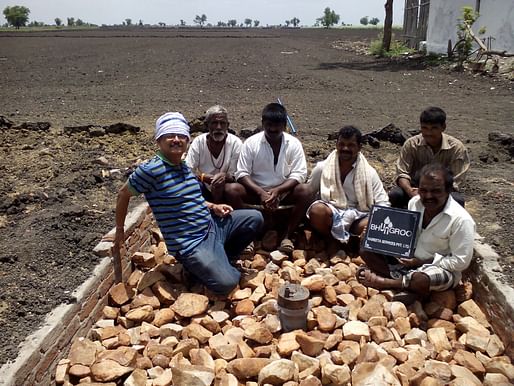
OpenAQ ”fosters a far-flung series of grassroots networks that fight “air inequality” by building and using the only global, real-time and historical, open-air quality data platform in the world, aggregating data from, so far, 47 countries and more than 5,400 ground stations. Through their open-source platform and rapidly growing collaborative community, they promote an ecosystem of air quality information that has enabled previously impossible cross disciplinary and international collaborations, scientific research projects, policy initiatives, and newly empowered, informed activism. No government, international organization, or other group had made these data open and universally formatted prior to OpenAQ’s innovative platform.”
The Vertical University Project by KTK-BELT approaches conservation and education in Nepal, the most vertical country in the world, through the design of a “Vertical University” comprising cooperatively owned “Learning Grounds” at various altitudes in distinct ecological areas. Thirty-three such Learning Grounds currently serve as place-based centers for ecological education and skills development. KTK-BELT engages farmers and youth to become stewards of biodiversity and their unique local environments, providing livelihood opportunities through the preservation and cultivation of unique plant and animal species, such as the Himalayan soap nut and the pangolin, as well as the preservation of local indigenous knowledge of the flora and fauna, of local agricultural and wildcrafting techniques, and of herbal medical traditions, such as the cultivation, production and use of 150 unique essential oils found in one particular area.”
Medic Mobile “equips community health workers with digital tools that radically boost the capacity of regional medical networks in poor countries to provide effective care and reach far more people, including those in the most isolated communities. With main offices in Nairobi, Kathmandu and San Francisco, Medic Mobile is active in 20 countries in sub-Saharan Africa, South Asia, and Central America. Its open-source tools have been used by more than 13,000 health workers caring for eight million people, and they are on track to equip another 200,000 health workers by the end of 2021. Their innovations include the design of a novel ‘thin-SIM’ system for collecting data using very cheap, locally-available phones, a smartphone application for more complex task management, and new web applications for facility-based health staff.”
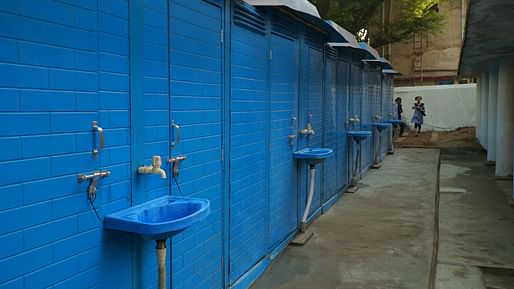
Sanitation and Health Rights India (SHRI) is “working to end open defecation in the Bihar and Jharkhand states of northern India. In India, open defecation causes the spread of diseases that kill an estimated 300,000 children under the age of 5 and result in $38 billion in health-related costs each year. SHRI constructs community toilet facilities that include hand-washing stations and a biogas digester, which uses the human waste to power a generator that produces electricity, which, in turn, powers a small water filtration plant that uses a patented resin filter to remove arsenic, fluoride, iron, and bacterial contaminants from the local groundwater. The resulting potable water is sold for less than half the current market cost, allowing SHRI to offset its operational costs while providing free toilets and cheaper potable water to the community. SHRI currently operates five facilities, each of which provides toilets and potable water for 1,500 people and costs only $30,000 to build.
Toilets and Taps is “another inspiring initiative seeking to eliminate the need for open defecation in India, where over 600 million people still do not have access to a toilet. Toilets and Taps works in the Visakhapatnam District of Andhra Pradesh state in southern India, primarily in small Dalit villages and all-girl tribal schools. The organization sets up 20 community bio-toilet units per village and 10 units per school, all equipped with a solar-powered water station that converts contaminated groundwater into 1.8 million liters of clean drinking water per year, sold at well below-market rates. The toilets do not require a septic tank or secondary waste treatment, as an inoculum of bacteria completely digests the waste, so no human intervention is required. Local men and women are trained to operate and manage the plant and machinery.”
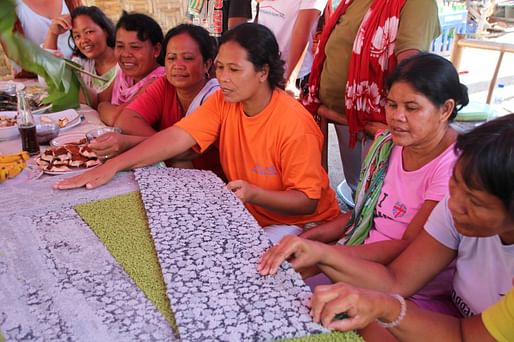
LaborVoices “revolutionizes transparency in global labor markets. Despite the uptick in social-compliance monitoring over the past decade, labor abuses are still commonplace. Multinational brands have limited visibility into working conditions at facilities where their goods are produced, relying heavily on traditional social-compliance approaches like audits and hotlines that have been proven to misrepresent true workplace conditions. In response, LaborVoices has designed an unprecedented technology platform (Symphony) that allows workers to report on working conditions free of cost and anonymously through their phones. LaborVoices aggregates this data and makes it easily accessible to factory management and brands in real-time. LaborVoices also educates workers on ethical labor practices and helps them find the best places to work. LaborVoices has launched Symphony successfully in Bangladesh and Turkey, acquiring 30,000 workers as users and more than 300 factories in its database in less than one year. They aim to bring the solution to new markets around the world in need of such transformation.”
Net-Works, “a partnership between eco-conscious carpet company Interface and the Zoological Society of London (ZSL), is a highly innovative program that interweaves community development, environmental protection, and closed-loop economic production. Interface wanted to source recycled material in a way that would benefit communities and the environment, and ZSL wanted to develop a model of community-based conservation that would be self-funding, empowering, and bring immediate benefits to local people. The result is Net-Works. So far, 24 poor fishing communities in the Philippines and 9 in the Lake Ossa region of Cameroon recover and recycle discarded nylon fishing nets into yarn for use as carpet tiles. A dangerous waste product that harms marine life becomes a valuable raw material. A fair price is paid for the nets and a community-based supply chain is created. Also, innovative local banking initiatives help break donor dependency and make conservation self-funding.”
Procesos Proambientales Xaquixe (PPX), “based in Oaxaca, Mexico, has created a methodology for micro-industrial sustainability using alternative energy technologies adapted to materials from local waste streams. This system fosters a transdisciplinary network of small enterprises or “ecoclusters” of trained local specialists who share knowledge and resources to enrich communities and economies. PPX supports small enterprises that use heat-treat processes to create artisanal products (e.g. mezcal, glass, ceramics, etc.), helping to co-create alternative technology solutions that lower energy consumption and costs and radically decrease environmental degradation and pollution. They have in fact begun collaborating with projects in The Maldives, Virgin Islands, Africa, and Brazil.”
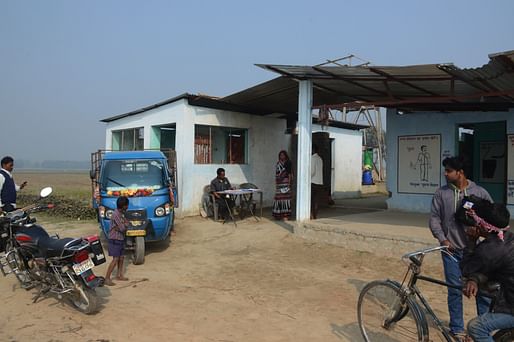
The Sustainable Green Initiative Forum has designed Bhungroo, (in Gujarati, “straw” or “hollow pipe”), “an innovative technology that can filter, inject, and store stormwater up to a depth of 300 meters in the subsoil. Operating in the Gujarat state of India with consultancy-based projects in Bangladesh, Ghana, Togo, and Vietnam, Bhungroo has 17 technical designs for a variety of soil types and agro-climatic zones and can be customized based on 27 variables. Using only 1 square meter of surface area, Bhungroo allows multiple farmers to collectively preserve and retrieve stored rainwater. In an area where female farmers are often disregarded as contributing members of society, this exemplary social enterprise also has a non-profit component that trains women who are smallholder farmers to collectively own the subsoil water stored by Bhungroo and to provide fee-based services to other smallholder farmers in their village.”
Ignitia, “the first highly accurate, scalable tropical weather forecasting company, has developed a sophisticated weather model specifically calibrated for the tropics, resulting in hyper-local forecasts that are twice as accurate as other weather forecasting services. Ignitia sends GPS-specific forecasts to farmers via simple SMS so they can make better farming decisions. Currently working in Ghana, Nigeria, and Mali while also sending forecasts to Burkina Faso and Senegal, Ignitia is expanding rapidly. It partners with telcos to send farmers, NGOs, and local organizations daily, monthly, and seasonal predictions. The message is sent in a simple text-lite format, and can be received on any mobile phone (no smartphone required). Farmers subscribe via their mobile operator and pay in micro-installments from their existing mobile credit. It costs just $0.03/message.”
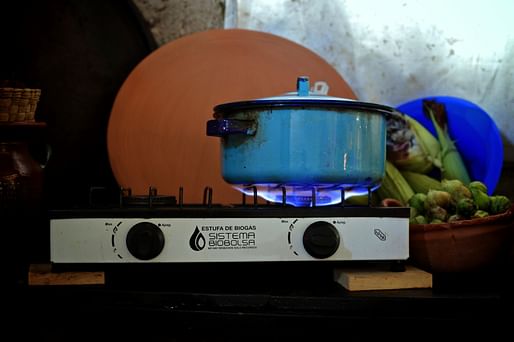
Sistema Biobolsa “permits small farms, rural communities, and urban settlements to convert organic waste into renewable energy and organic fertilizer. Based on a biomimetic model that originated in the early 20th century, Sistema Biobolsa has re-designed the common bio-digester to provide a state-of-the-art, robust system with a high-quality membrane comprising modular parts that is compact enough to be distributable via donkeys, motorbikes, or boats. Sistema.bio places a heavy focus on the monitoring and evaluation of their technology. Their replication package includes technical and communication tools that allow local representatives to track potential waste streams, calculate energy values, order systems and track and report impacts over time.”
The review process will continue in the coming weeks. Finalists are expected to be announced in September, and the winner will be revealed in October. During the weekend of November 10-12, there will be a 10th anniversary celebration of the Fuller Challenge, which will include the award ceremony. The event will be open to the public!
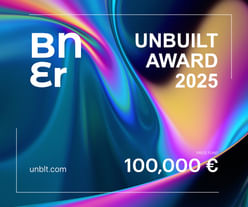
The Buildner UNBUILT Award 2025 / 100,000€ Prize
Register by Thu, Mar 6, 2025
Submit by Thu, Nov 20, 2025
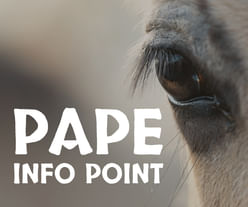
Pape Info Point
Register by Tue, Nov 19, 2024
Submit by Wed, Dec 18, 2024
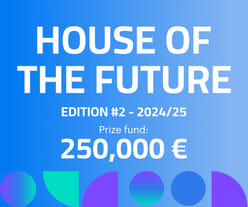
250,000 € Prize / HOUSE OF THE FUTURE 2024/25
Register by Wed, Apr 30, 2025
Submit by Mon, Jun 2, 2025
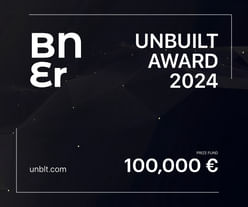
The Buildner UNBUILT Award 2024 / 100,000€ Prize
Register by Wed, Oct 30, 2024
Submit by Wed, Nov 20, 2024
No Comments